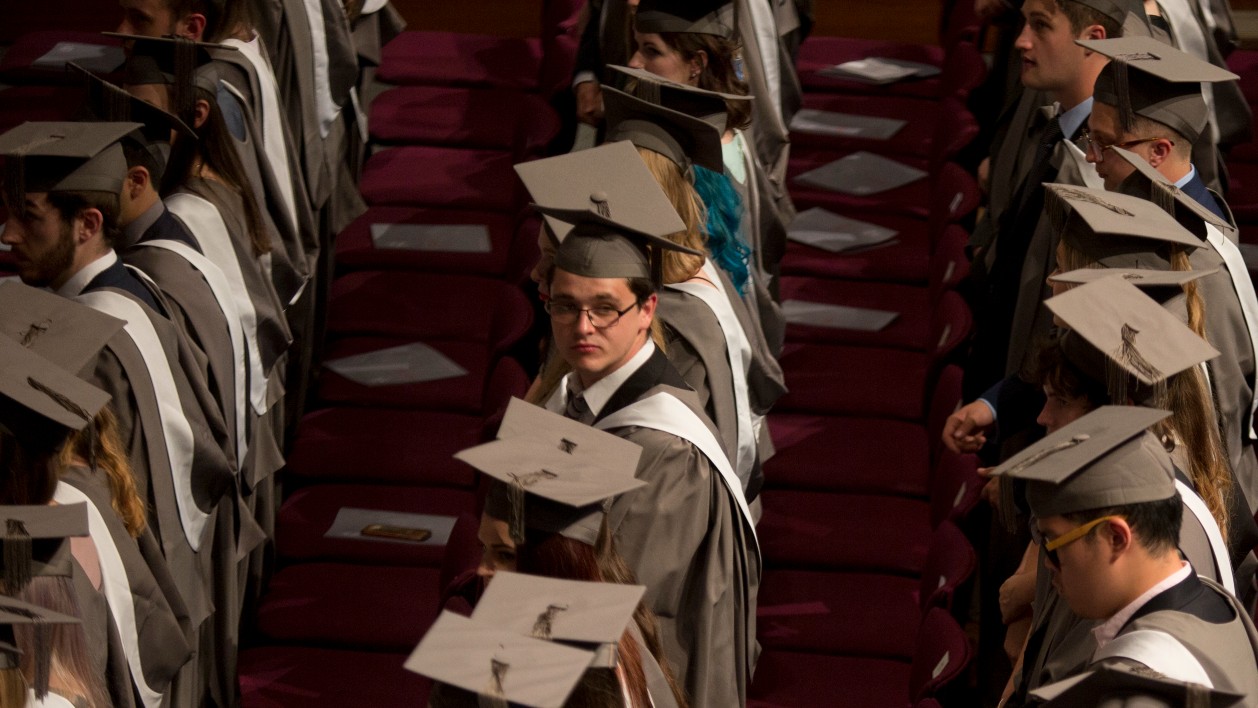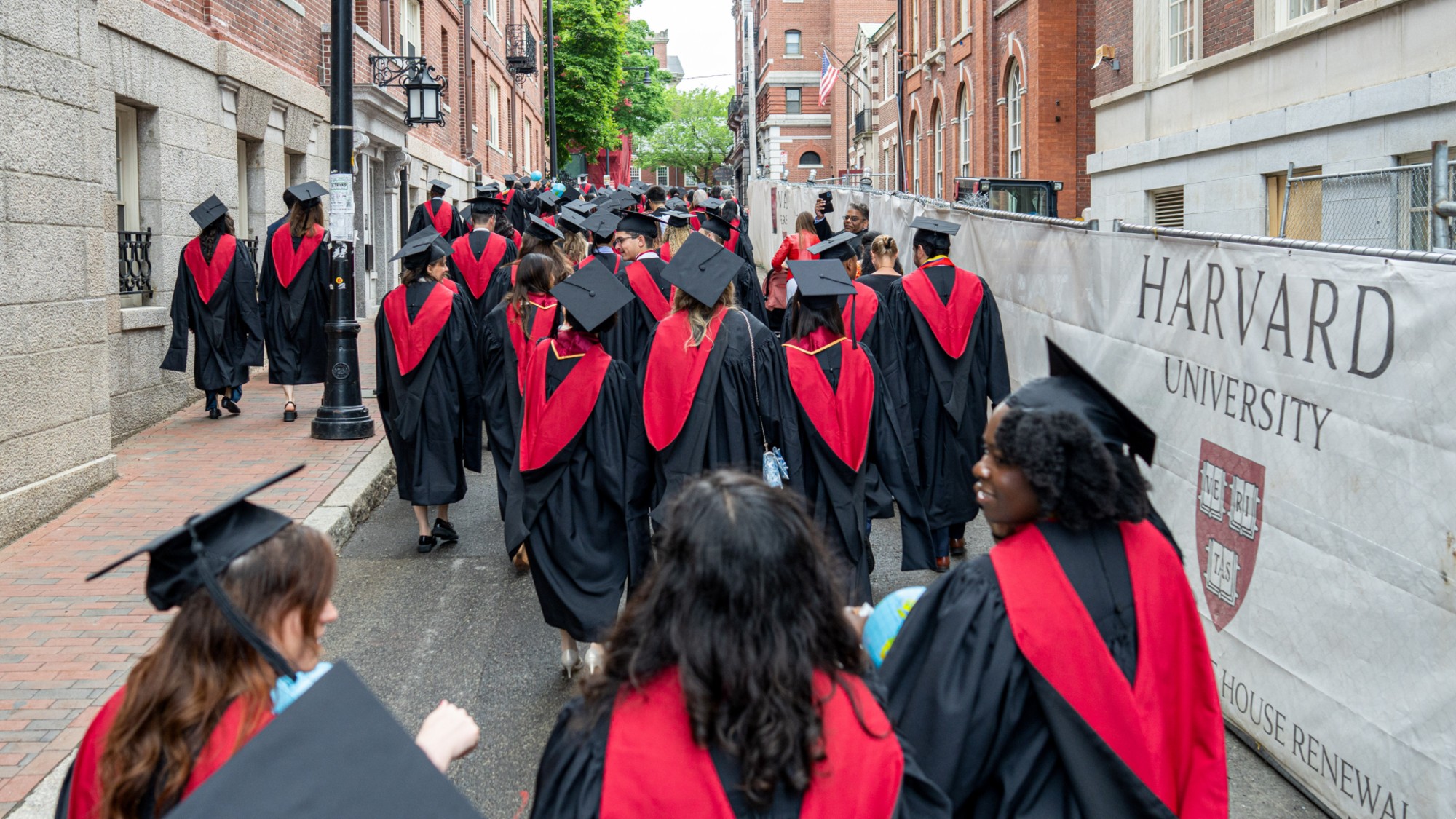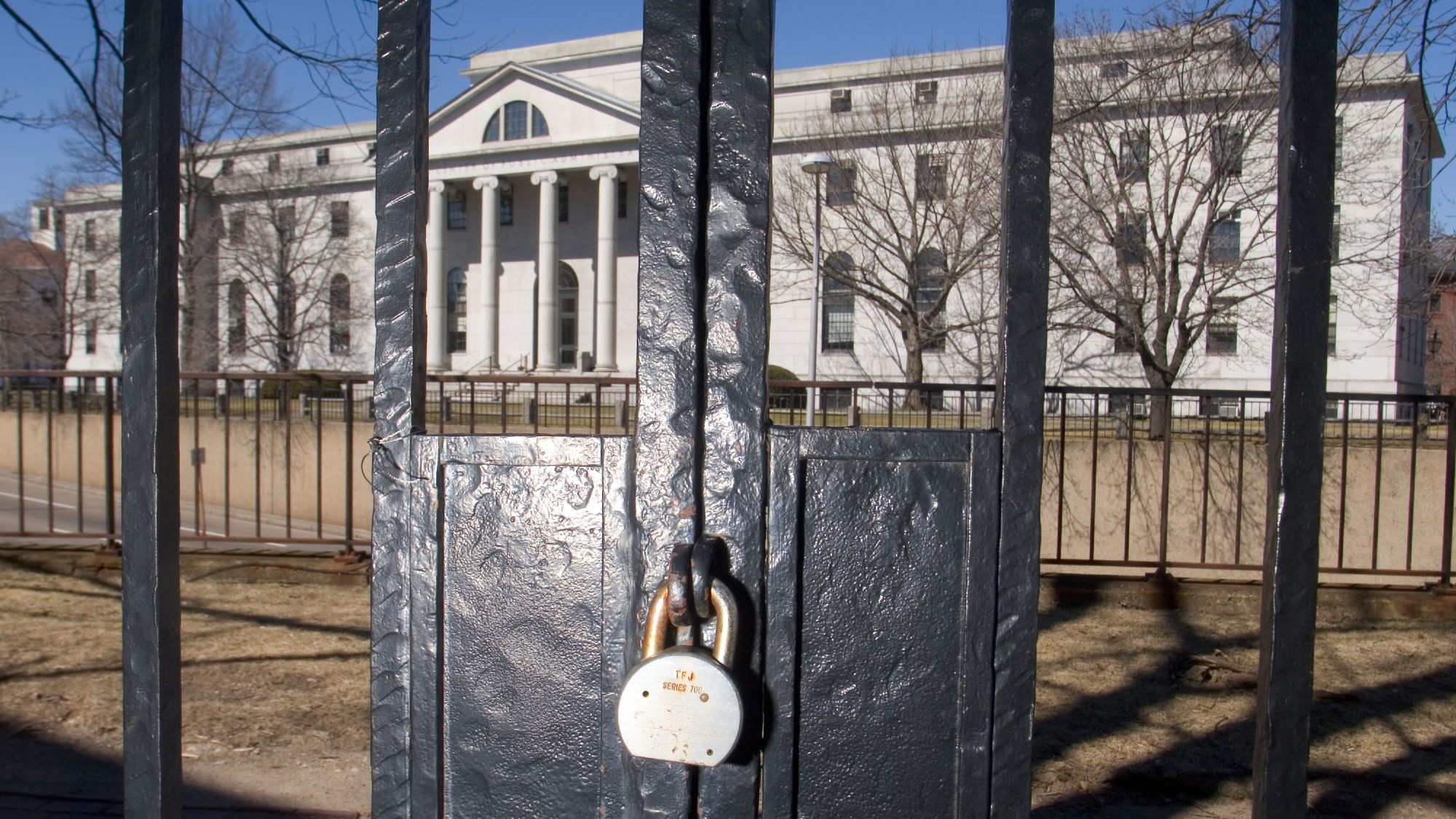The pros and cons of going to university
Record-high costs and competition leave A-level students questioning worth of a degree

A free daily email with the biggest news stories of the day – and the best features from TheWeek.com
You are now subscribed
Your newsletter sign-up was successful
Thousands of A-level students have missed out on their first-choice university after this year’s grades reverted to pre-pandemic boundaries, sparking a rush for “clearing” places.
According to Ucas, only 205,000 school leavers made their offers for their first- or second-choice university, “nearly 10,000 fewer than in 2022”, said The Guardian, thanks to a “steep fall” in the number of top A-level grades. Universities UK said only 79% of 18-year-olds were accepted on to their first-choice course.
Nearly 50,000 teenagers were left “scrambling” to find a course after the results were published last week, said The Times, with a record 10,400 gaining places through the Ucas clearing service – up from 6,000 last year.
The Week
Escape your echo chamber. Get the facts behind the news, plus analysis from multiple perspectives.

Sign up for The Week's Free Newsletters
From our morning news briefing to a weekly Good News Newsletter, get the best of The Week delivered directly to your inbox.
From our morning news briefing to a weekly Good News Newsletter, get the best of The Week delivered directly to your inbox.
Some universities were “bending over backwards” to admit would-be students, wrote education editor Sian Griffiths, due to their “urgent need” for the students’ tuition fees of £9,250 a year.
With intense competition for places and evermore focus on the cost benefit of going to university, The Week weighs up the pros and cons of getting a degree.
1. Pro: greater earning potential
Graduates can reasonably expect to earn more on average than non-graduates over the course of their careers. According to Statista, graduates in England earned an average of £38,500 last year, which is £11,500 higher than non-graduates.
However, this fabled “graduate premium” has fallen over time, according to data from the Higher Education Statistics Agency, thanks partly to more people gaining degrees and demand outstripping supply of places.
A free daily email with the biggest news stories of the day – and the best features from TheWeek.com
“How much graduates earn also depends on the subject studied and university attended,” said BBC News.
On average, women who study creative arts and languages degrees earn about the same in their lifetime as they would have done without a degree, according to research by the Institute for Fiscal Studies think tank. Men who study creative arts on average earn less across their lifetime than those who didn’t attend university.
However, students who chose law, economics or medicine earned significantly more than those without a degree.
2. Con: added student debt
While tuition fees vary, cost is a huge factor – especially since they tripled a decade ago. Many will pay £9,250 a year, and take out a student loan to pay for it.
Factor in living costs and the average debt for those who started their course in 2022/23 will be £45,600 by the time they graduate, according to data from the Commons Library.
Although students do not start paying back their loans until their earnings exceed a certain threshold (currently £27,660 a year, according to government data), they are charged interest on their total loan from the day they take it out.
When repayments begin, they can be substantial (currently 9% of their income above the repayment threshold). It had been the case that the balance will be written off after 30 years, or when you turn 65 (whichever came first).
But a “big change this year”, for students starting their courses on or after 1 August 2023, will now see the balance lasting for 40 years rather than 30, said The Times – “until close to retirement for many” – and a lower salary repayment threshold.
Universities have said that “effectively freezing tuition fees” since 2012 is “threatening to have an impact on the quality” of what they can offer as their income has been reduced dramatically in real terms.
3. Pro: greater job choice
A degree offers greater opportunities and choice in the job market. It will also “improve your chances of securing a job role in specialised fields”, said Career Addict. A degree “is essential for certain skilled roles and careers”.
A university education “allows you to target a broader range of careers than you can through an apprenticeship”, said Prospects, “but both will stand you in good stead when it comes to getting a job”.
4. Con: ‘worthless’ degrees
According to data published in 2019 by the Office for National Statistics, almost a third of graduates were overqualified for their job.
“Our findings show that people who studied arts, biology and humanities are the most likely to be overeducated,” said Dr Maja Savic, an ONS economist.
Nearly three out of 10 graduates do not progress into highly skilled jobs or further study 15 months after graduating, according to the regulator, the Office for Students (OfS).
Under new government plans, universities could be restricted in recruiting students to courses that “do not have good outcomes”. This includes courses with high drop-out rates, or a low proportion of graduates ending up in professional jobs.
5. Pro: life experience
“Of course going to university is about so much more than money,” said The Times. While hard to quantify, many graduates benefit enormously from the university experience, and the life lessons learned.
These include making new friends from different backgrounds, expanding your network of contacts that can help you in later life, broadening your range of interests through extracurricular societies and clubs, studying abroad, learning skills like budgeting – all of which will serve you well after you graduate.
6. Con: vocational courses
The focus has begun to shift towards vocational courses and on-the-job training, which offers many of the skills needed to succeed in the workplace – without the accompanying student debt. From 2024, candidates will be able to apply to do apprenticeships through Ucas.
A 2021 report by the Chartered Institute of Personnel and Development found that the majority of graduates (52%) would have considered doing an apprenticeship instead of a degree.
By doing an apprenticeship, “you’ll immediately enter the world of work and gain valuable on-the-job experience while earning money as you study”, said Prospects. “You won’t pay tuition fees and you’ll make industry contacts from day one.”
Harriet Marsden is a senior staff writer and podcast panellist for The Week, covering world news and writing the weekly Global Digest newsletter. Before joining the site in 2023, she was a freelance journalist for seven years, working for The Guardian, The Times and The Independent among others, and regularly appearing on radio shows. In 2021, she was awarded the “journalist-at-large” fellowship by the Local Trust charity, and spent a year travelling independently to some of England’s most deprived areas to write about community activism. She has a master’s in international journalism from City University, and has also worked in Bolivia, Colombia and Spain.
-
 Political cartoons for February 15
Political cartoons for February 15Cartoons Sunday's political cartoons include political ventriloquism, Europe in the middle, and more
-
 The broken water companies failing England and Wales
The broken water companies failing England and WalesExplainer With rising bills, deteriorating river health and a lack of investment, regulators face an uphill battle to stabilise the industry
-
 A thrilling foodie city in northern Japan
A thrilling foodie city in northern JapanThe Week Recommends The food scene here is ‘unspoilt’ and ‘fun’
-
 American universities are losing ground to their foreign counterparts
American universities are losing ground to their foreign counterpartsThe Explainer While Harvard is still near the top, other colleges have slipped
-
 How will new V level qualifications work?
How will new V level qualifications work?The Explainer Government proposals aim to ‘streamline’ post-GCSE education options
-
 Where will international students go if not the US?
Where will international students go if not the US?Talking Points China, Canada and the UK are ready to educate the world
-
 Colleges are canceling affinity graduations amid DEI attacks but students are pressing on
Colleges are canceling affinity graduations amid DEI attacks but students are pressing onIn the Spotlight The commencement at Harvard University was in the news, but other colleges are also taking action
-
 Can Trump ban overseas students from US universities?
Can Trump ban overseas students from US universities?Today's Big Question President's decision to revoke Harvard's access to database for admitting international students 'drastically escalates' the dispute
-
 America's academic brain drain has begun
America's academic brain drain has begunIN THE SPOTLIGHT As the Trump administration targets universities and teachers, educators are eying greener academic pastures elsewhere — and other nations are starting to take notice
-
 Is academic freedom in peril?
Is academic freedom in peril?Today's Big Question Faculty punishments are on the rise
-
 Anti-Israel protests impact a Jewish-rooted university
Anti-Israel protests impact a Jewish-rooted universityThe Explainer The president of Brandeis University resigned as a result of multiple factors, including his handling of recent protests